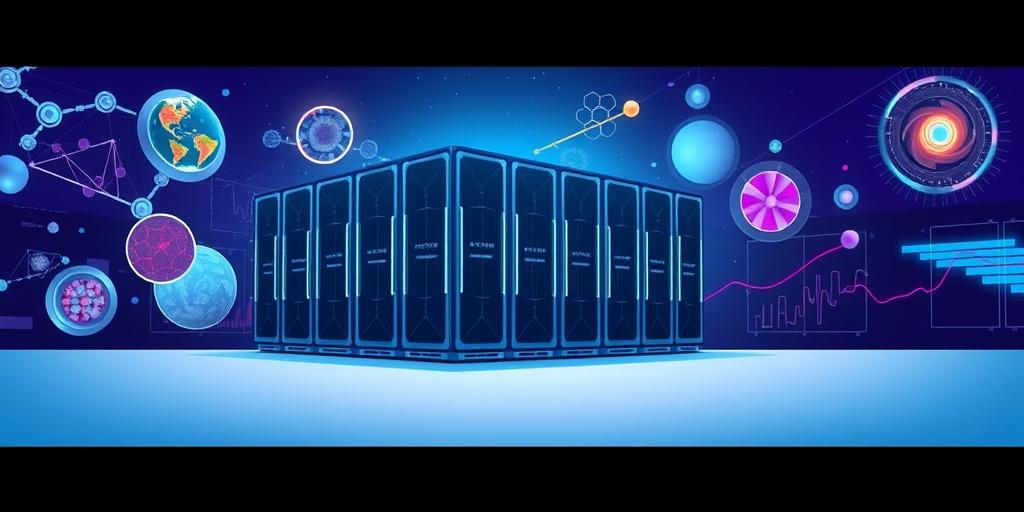High-Performance Computing (HPC) for Scientific Breakthroughs (2025)
High-Performance Computing (HPC) has emerged as an indispensable tool for researchers and scientists across various disciplines. By leveraging the power of parallel processing and advanced algorithms, HPC enables complex simulations, data analysis, and modeling that would be impossible with traditional computing methods. This article explores the pivotal role of HPC in driving scientific breakthroughs, highlighting recent advancements and future trends.
Understanding High-Performance Computing
HPC refers to the use of supercomputers and computer clusters to solve complex computational problems. These systems are designed to execute millions or even billions of calculations per second, making them ideal for tasks that require significant processing power. Key components of HPC systems include:
- Processors: Multi-core processors and specialized accelerators (e.g., GPUs, FPGAs) work in parallel to enhance computational speed.
- Memory: Large memory capacities allow for the storage and manipulation of extensive datasets.
- Interconnects: High-speed networks facilitate rapid data transfer between nodes in a cluster.
- Software: Optimized algorithms and libraries enable efficient use of hardware resources.
HPC Applications in Scientific Research
HPC is instrumental in numerous scientific domains, including:
- Climate Modeling: HPC systems simulate global climate patterns, predict weather phenomena, and assess the impact of climate change. Advanced models incorporate vast amounts of data from various sources, providing insights into complex environmental processes.
- Drug Discovery: HPC accelerates the drug discovery process by simulating molecular interactions, predicting drug efficacy, and identifying potential drug candidates. This reduces the time and cost associated with traditional experimental methods.
- Materials Science: HPC enables the design and analysis of novel materials with specific properties. Simulations predict material behavior under different conditions, guiding the development of advanced materials for various applications.
- Astrophysics: HPC is used to simulate the formation and evolution of galaxies, stars, and planets. These simulations help scientists understand the fundamental processes governing the universe.
- Genomics: HPC facilitates the analysis of large genomic datasets, enabling the identification of genetic markers associated with diseases, the development of personalized medicine, and the understanding of evolutionary relationships.
Recent Advancements in HPC
Several recent developments have significantly enhanced the capabilities of HPC systems:
- Exascale Computing: The advent of exascale computers, capable of performing one quintillion calculations per second, marks a significant milestone. These systems enable even more complex simulations and analyses.
- Artificial Intelligence (AI) Integration: Combining HPC with AI and machine learning techniques enhances data analysis, automates tasks, and accelerates discovery. AI algorithms can identify patterns, optimize simulations, and predict outcomes with greater accuracy.
- Quantum Computing: While still in its early stages, quantum computing holds the potential to revolutionize HPC. Quantum computers can solve certain types of problems much faster than classical computers, offering unprecedented computational power.
Future Trends in HPC
The future of HPC is characterized by several emerging trends:
- Heterogeneous Computing: Utilizing a mix of different types of processors (e.g., CPUs, GPUs, FPGAs) to optimize performance for specific tasks.
- Cloud-Based HPC: Offering HPC resources as a service through the cloud, making it more accessible to researchers and organizations.
- Data-Centric Computing: Focusing on efficient data management and processing to handle the increasing volume of data generated by scientific experiments.
- Energy Efficiency: Developing energy-efficient HPC systems to reduce operating costs and environmental impact.
Conclusion
High-Performance Computing is an essential tool for driving scientific breakthroughs across a wide range of disciplines. As HPC technology continues to advance, it will enable even more complex simulations, data analyses, and modeling, leading to new discoveries and innovations that benefit society as a whole. By understanding the current state and future trends of HPC, researchers and policymakers can leverage its power to address the grand challenges facing humanity in 2025 and beyond.
